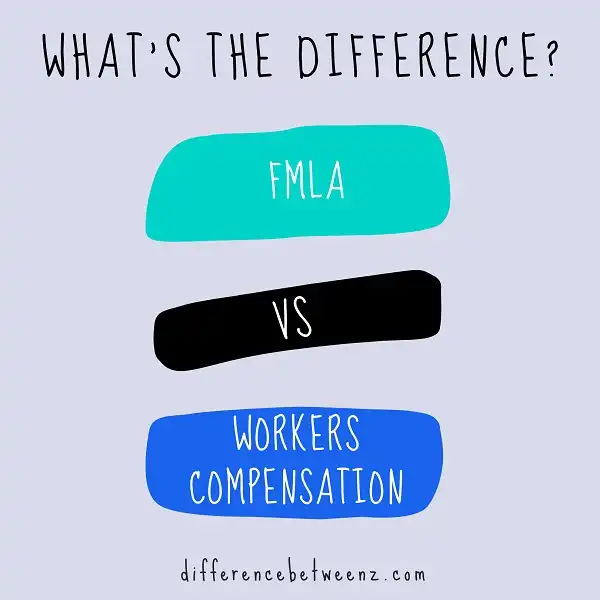Workers’ compensation and FMLA are two separate programs that offer benefits to employees. Worker’s compensation is a program that provides benefits to employees who are injured or become ill as a result of their job. FMLA is a program that provides unpaid leave to employees for qualifying reasons. This blog post will discuss the difference between FMLA and worker’s compensation. In the United States, there are two main types of employee benefits programs: worker’s compensation and the Family and Medical Leave Act (FMLA). These two programs offer different types of benefits to employees who qualify.
What is Worker’s Compensation?
Worker’s compensation is a system of insurance that provides benefits to employees who are injured or become ill as a result of their job. Worker’s compensation covers medical expenses, income replacement, and death benefits. Worker’s compensation is typically mandatory in most jurisdictions, meaning employers must provide coverage for their employees. In some cases, employees may be covered by worker’s compensation even if they are not working at the time of the injury or illness, such as if they are on break or on vacation. Worker’s compensation is designed to protect employees from financial hardship after an injury or illness and to provide them with the resources they need to recover and return to work. Worker’s compensation can be provided by private insurance companies, state-run programs, or self-insured employers.
What is FMLA?
FMLA stands for the Family and Medical Leave Act. It is a federal law that requires employers to provide employees with up to 12 weeks of unpaid leave for certain family and medical reasons. FMLA also requires employers to continue health insurance coverage during the leave and to reinstate employees to their previous job or an equivalent position upon their return. Employees who are eligible for FMLA leave must have worked for their employer for at least 12 months and have logged at least 1,250 hours during that time. FMLA leave can be taken all at once or in increments and can be taken for a variety of reasons, including the birth or adoption of a child, the serious illness of an employee or a family member, or the need to care for a family member with a serious health condition. FMLA leave is an important benefit that helps employees balance work and family responsibilities. However, it is important to note that FMLA leave is unpaid, so employees should plan accordingly.
Difference between FMLA and Workers Compensation
FMLA and worker’s compensation are two very different things. FMLA is a law that provides employees with up to 12 weeks of unpaid, job-protected leave for certain family and medical reasons. Worker’s compensation, on the other hand, is a system of insurance that provides benefits to employees who are injured or become ill as a result of their job. FMLA does not replace wages lost due to an injury or illness, but it does provide job protection. Worker’s compensation, on the other hand, provides wage replacement and medical benefits.
Conclusion
So, what is the difference between FMLA and workers’ compensation? The biggest distinction is that FMLA protects employees who are taking care of a family member with a serious health condition, while workers’ compensation covers employees who are injured or become ill at work. Eligibility for benefits and the length of time an employee can receive coverage varies under each program.


